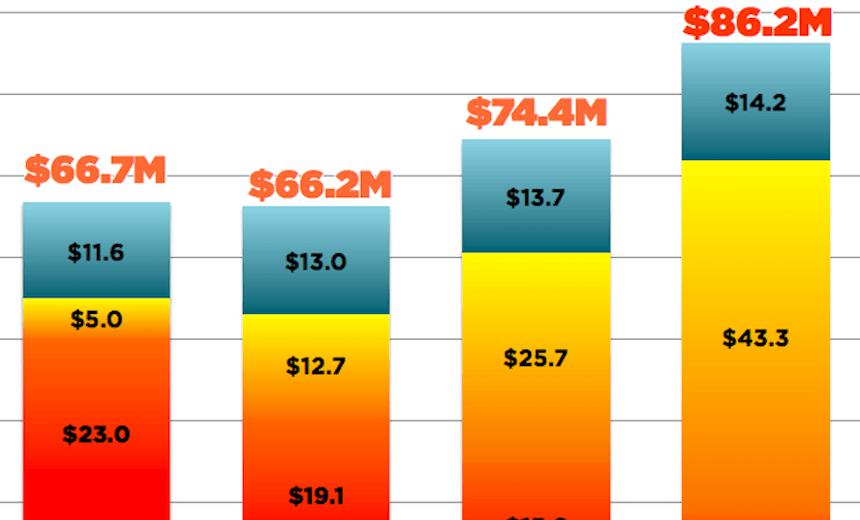A new report from Recorded Music NZ shows two years of growing revenues after 15 years of decline. But not everyone is convinced the news is as good as it seems.
New figures released by Recorded Music NZ show that in 2016, the New Zealand music industry increased by 16% to $86 million, up from the 12% growth from the previous year.
After 15 years of decline, two years of growth over 12% certainly sounds like good news. But, when that growth is largely driven by an increase in revenue from streaming services (up to 50% of total revenue from 35% last year), it’s unclear how much of that money stays in New Zealand.
“The figures for the actual real New Zealand music industry, which I would define as New Zealand musicians, local music businesses, labels investing in New Zealand music, haven’t been made available,” says Ben Howe, founder of Arch Hill Recordings, managing director at Flying Nun Records and partner in record store/distributor Flying Out. “So we don’t actually know if the New Zealand Music recorded industry is growing or not. The only thing it is safe to assume is that the actual New Zealand music industry is likely to be a small fraction of the $86 million being talked about with the release of these new figures.
“All these new figures actually show us is that the music industry operating in New Zealand – which is mostly imported music – is growing. It doesn’t show us that New Zealand music is growing or that local artists, music producers and so on are getting any more money.”
Recorded Music NZ CEO Damian Vaughan recognises that the figures don’t account for how much of the $86 million is retained in New Zealand, but says that the major labels, who take in the bulk of that revenue, keep a “substantial chunk” of earnings in the country to invest in running their local organisations and investing in local music.
“All of this money, the $86 million, that’s all money that goes to New Zealand companies and New Zealand recording artists,” he says, clarifying that the number does include money made from sales of international artists by New Zealand subsidiaries of overseas labels. “This is money that’s going straight to Universal New Zealand, Sony, Warner and, y’know, Rhythm Method [and other independents]. It’s the money they report to us as what they’ve earned.”
Vaughan says that, despite not knowing the portion of revues that stay in the country, the report is “overwhelmingly positive. It will be beneficial for everyone locally. More money in the business is helpful.”
But Howe isn’t convinced. He says we need more information before we start popping bottles. “Much more useful information for the local music industry would be what is New Zealand music market share of that $86 million? Is that share is growing? How is that broken down across streaming, performance royalties and physical sales? Once that information is available then the local industry – including Recorded Music NZ -– can start setting some targets and effective positive discrimination strategies to grow the New Zealand Music industry. Then maybe one day the local industry will actually be a viable proposition.”
Also in the report:
Public performance and broadcast revenues are up 4% to $14,200,000.
Downloads and physical product continue to decline. Downloads are down 29% to $11 million while physical sales slip even further, down 9% to $17.7 million.
Vinyl continues its comeback, accounting for 14% of all revenue from physical sales, up 56% to $2.5 million.
The Spinoff’s music content is brought to you by our friends at Spark. Listen to all the music you love on Spotify Premium, it’s free on all Spark’s Pay Monthly Mobile plans. Sign up and start listening today.
